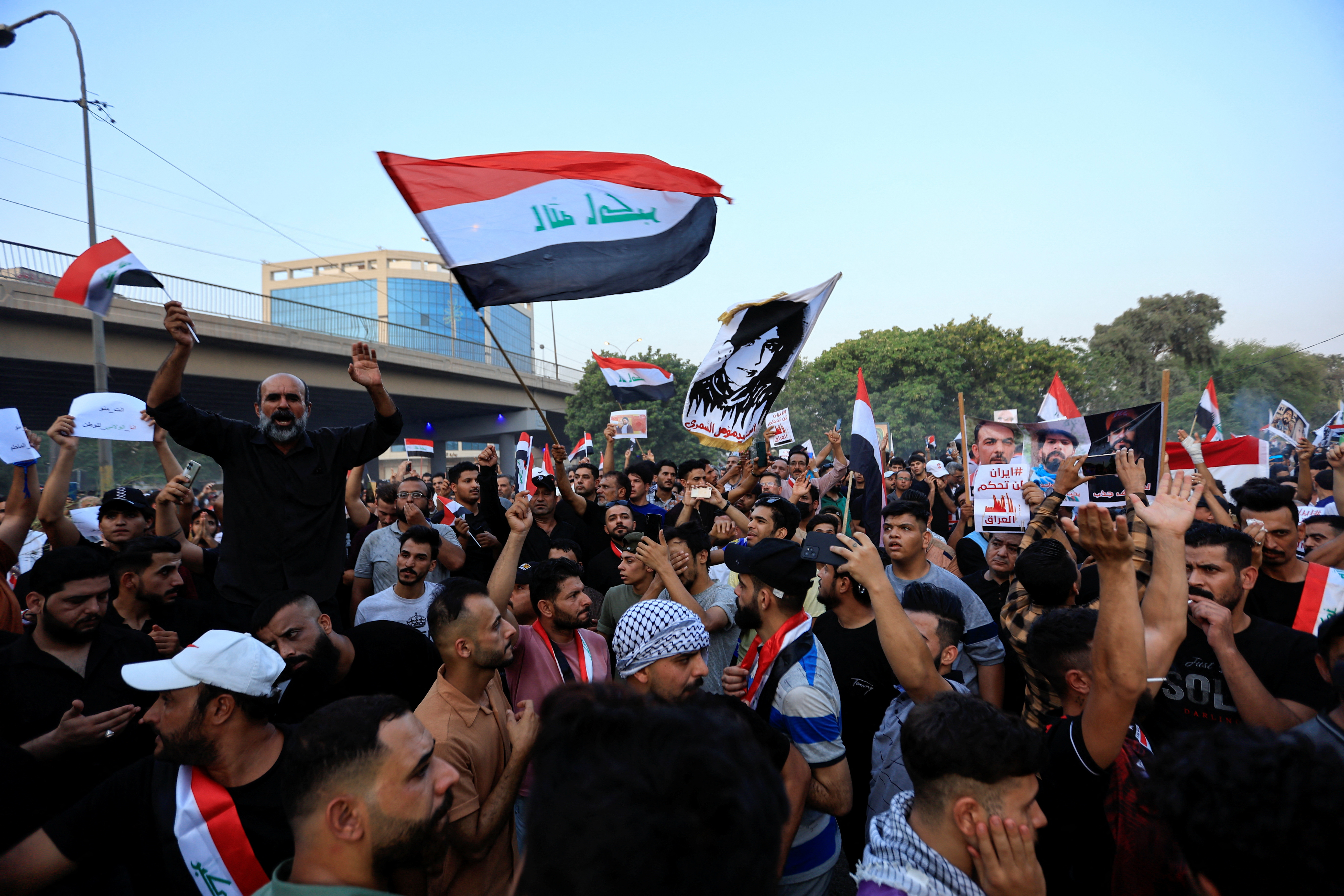
Angered by a months-long political crisis, thousands of Iraqis have taken to the streets of the capital, Baghdad, days after deadly clashes between rival Shia groups sparked fears of widespread unrest.
The non-partisan protesters streamed into western Baghdad’s Al-Nusoor Square on Friday, brandishing banners and Iraqi flags to demand a complete political overhaul.
“Protesters say they took to the streets today to demand the removal of all the political elite, whom they accuse of corruption,” Al Jazeera’s Mahmoud Abdelwahed said from Baghdad.
“They are calling for justice for their colleagues who were killed at the hands of security forces in 2019,” Abdelwahed added, referring to the anti-government protest movement that erupted in October 2019 but has since died down.

Friday’s mobilisation follows nearly 11 months of paralysis that has left the country without a new government, prime minister or president, with Shia factions disagreeing on forming a coalition since elections last October.
Demonstrators shouted the Arab Spring slogan “People want the fall of the regime” and “Iran will not rule any more”.
“They are chanting against the Iranian-backed politicians,” Abdelwahed said. “They don’t want any government to be manipulated by Iran, whom they accuse of having ruined the country for years.”
Clashes between supporters of powerful Shia scholar Muqtada al-Sadr and rival Iran-backed factions earlier this week turned Baghdad’s Green Zone – home to government buildings and embassies – into a battlefield.
At least 30 al-Sadr supporters were killed in nearly 24 hours of clashes that erupted on Monday after his supporters stormed the government offices.
The violence moved to the country’s south on Thursday where overnight clashes between al-Sadr-affiliated fighters and Iran-backed Asaib Ahl al-Haq forces killed four people. Two members of al-Sadr’s Saraya al-Salam forces were among those killed.
Despite Iraq’s oil wealth, many citizens are mired in poverty, and some 35 percent of young people are unemployed, according to the United Nations.
The country is also blighted by power cuts and crumbling public services and now faces water shortages and drought.







